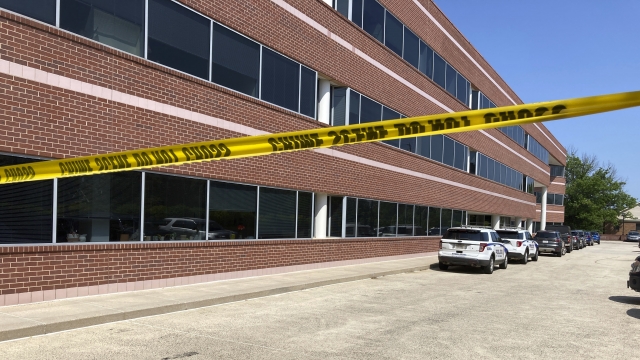From political ads to local news, Americans hear a lot about crime. Over the last 50 years, at least one in four Americans said they feel like crime is worse than the year before. But nationally, violent crime rates have been going down for decades.
There are some exceptions. FBI crime data shows a spike in homicides and aggravated assaults from 2019 to 2020. But overall, violent crime has been trending down since the early 1990s. However, that hasn't stopped Americans from worrying.
"The public and the politicians kind of feed off of each other and reinforce each other," said Kevin Wozniak, a lecturer in criminology at Maynooth University.
In 2022, Republican candidates focused a lot on crime. In fact, former House Speaker Nancy Pelosi said her party lost control of the House in part because New York Democrats didn't effectively address voters' concerns on the issue.
"We believe that every American deserves to live in a safe community, where they and their families can thrive," said Pelosi in a floor speech about assault weapons on July 29, 2022.
Crime, and how politicians talk about it, can be crucial in local elections, too. Take this year's Chicago mayoral race, where 44% of voters in the Windy City said crime and public safety was a top concern.
The two runoff candidates, Brandon Johnson and Paul Vallas, proposed different solutions. Vallas wanted to put more money into the Chicago Police Department. Johnson campaigned on tackling the root causes of crime, like improving mental health resources and creating new youth employment opportunities. Ultimately, voters backed Johnson.
SEE MORE: Lawmakers want to make ATM robberies a federal crime
That election confirms what Wozniak uncovered in his own research.
"I think a lot of scholars, a lot of journalists and a lot of politicians really, really underestimated that public appetite for investing into communities so that communities themselves could help fight and prevent crime," said Wozniak.
Wozniak says much of the existing research about crime is too simplistic. Questions like 'Do you support the death penalty?' or 'Do you agree with defunding the police?' are too broad. So he wanted to see how Americans reacted when given a more complex choice: If you were in charge of making your own crime prevention budget, would you give more money to police and prisons? Or would you invest in community institutions?
"A majority of Americans, both white and black Americans tend to either prefer a balanced budget, where they would kind of roughly split their hypothetical money between criminal justice institutions and community-based institutions, or significant trends of the public actually would invest most or all of their money into community institutions," said Wozniak.
Congress has struggled to find compromise on crime policy. But in 2018, then-President Trump signed the First Step Act. The law changed federal sentencing guidelines and mandated improvements in federal prisons. Sens. Dick Durbin and Chuck Grassley pushed that bill through — and promised more to come. But five years later, their follow up bills haven't gotten any traction.
Wozniak thinks Johnson's win in Chicago could show other major cities that a holistic approach to reducing crime is something voters support.
"I'm cautiously optimistic that he's going to help move the overall national conversation in that direction, which I think would be a very positive and evidence-based thing to do," said Wozniak.
Trending stories at Scrippsnews.com




